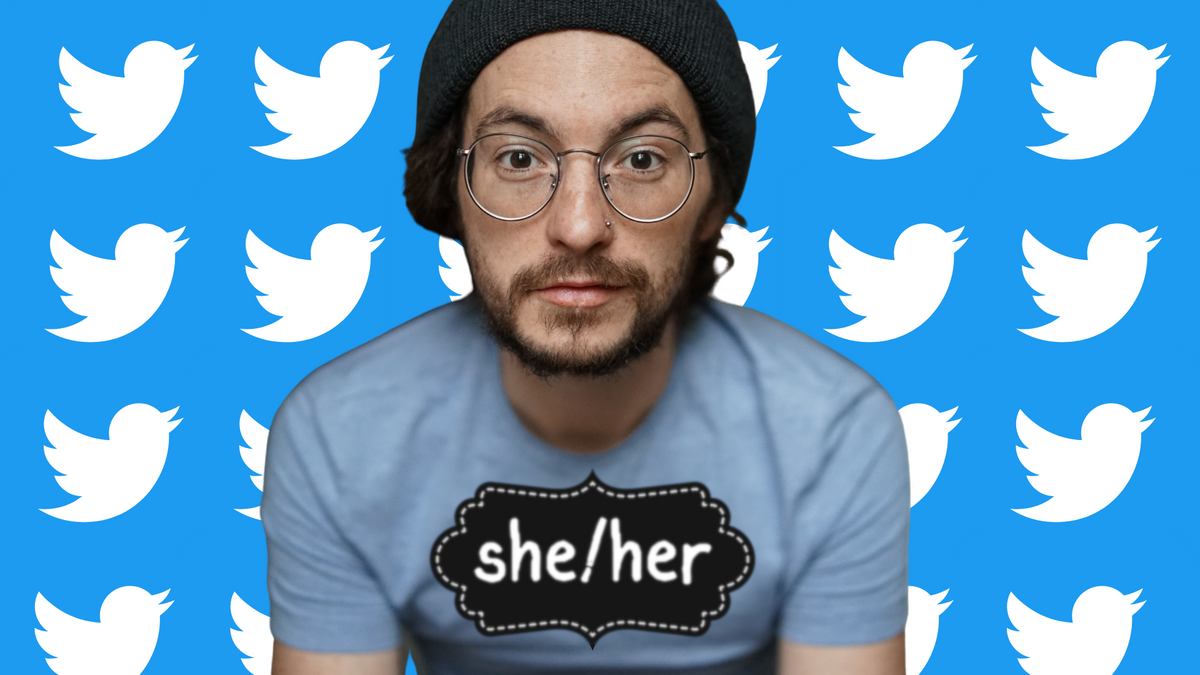Twitter Adds 'Misgendering, Deadnaming' as Reportable
“Posting logos, symbols, or images intended to spread hate,” included in reporting options.

Twitter users have started to spot a change in the platform's reporting tools. In some countries, this seems to go back to at least March, 2022.
For instance, for people using Twitter in Belgium, the reporting process now includes categories that used to only feature in the platform’s Terms of Services. The new process has a choice to report tweets that “attack” someone “because of their identity.”

Under the “Attacked because of their identity” category, the users can report tweets or accounts for “Slurs, misgendering, racist or sexist stereotypes, encouraging others to harass, sending hateful imagery.”

If users choose to report someone for “misgendering,” a window opens announcing that Twitter only enforces their rules in case of “protected categories.” They name race, ethnicity, national origin, religion, sexual orientation, gender/gender identity, disability, disease and age, but do not mention “sex.”

Other choices now available are reporting someone for “Spreading fear about them because of their identity” or “Posting logos, symbols, or images intended to spread hate.”
The reporting of “misgendering” or “deadnaming” on Twitter has long been “informally” in use on the platform - in 2018, Meghan Murphy, a Canadian activist, had her account permanently suspended for tweeting “Yes, it’s him,” referring to a trans-identified man called Jonathan Yaniv, after Twitter updated their “Terms of Services” at short notice.
On December 7, 2021, Twitter announced on their blog that they were testing a new reporting tool with a small group of people in the US. However, 2022 is the first time that “misgendering” and “deadnaming” were spotted by the wider public who use the platform as direct choices in Twitter’s reporting tools.
The new Twitter reporting process might now make it even harder for women to speak against gender identity ideology, because they can be reported for “misgendering” or “deadnaming” someone if they refuse to use female pronouns for males.
Beside Meghan Murphy, many other women have been permanently suspended from Twitter, especially since 2018.
Long life feminist Maria Maclachlan, also in 2018, was first suspended for a week before being banned when she tweeted “So she's a woman - what's your point? And no, I'm not a retard - you're the one who thinks transwomen are women and people who know they are not 'aren't people.'"
British activist Kellie-Jay Keen-Minshull (also known as Posie Parker), long life activist and author Julia Long, Australian academic Holly Lawford-Smith, American activist Karen Davies (You’re kidding, Right?) and Italian academic and feminist Alessandra Asteriti also lost their accounts on Twitter. Since 2018, a male ally, Sam Barber, has been compiling a more comprehensive list of people who have been suspended or banned from Twitter for standing up against gender identity ideology, many of them for “misgendering” or “deadnaming.”
What is “misgendering” and “deadnaming?”
According to some of the most vocal trans-activists, “misgendering” is the act of referring to someone with the “wrong pronouns” or not using someone's “preferred pronouns,” while “deadnaming” means referring to someone by the name they were known by before they came out as trans.
However, as many people who have dipped their toes in the gender identity debate know, what is called “misgendering” is actually “correctly sexing” someone - or using pronouns that reflect someone’s sex, instead of their self-declared gender identity.
Others say that there’s no such a thing as misgendering, but missexing can happen when people who do not conform to sex stereotypes get referred to as the opposite sex. Lesbian activist Ceri Black told 4W.Pub she experiences missexing “When fellas call my wife "sir" or "lad" and then get REALLY flustered when she opens her gob and is clearly a woman.”
Another woman, P. O. Neil, a scientist, spoke to us about a similar experience:
“I met a guy the other week. He couldn’t pronounce my first name, he clearly got flustered about pronouns because I’m a GNC [gender non-conforming] female and, instead of getting it ‘wrong,’ he just referred to me by first initial and second name. It’s ludicrous, I couldn’t have cared less if he got it wrong.”
“As a butch lesbian, I often get called sir or ‘this gentleman,’ especially in winter when I’m wearing bulky clothes,” another woman, with the username Madame Ovary, said. “But when people take a second look they realize I’m female and they’re usually apologetic but it’s fine because it’s a genuine mistake…”
Other people, like author Verity Stingz (pseudonym), claim that imposing the word “cis” to refer to them - as in “ciswoman” or “cisman” - is also “misgendering” because they don’t believe in gender identity. She wrote, after being asked what misgendering is: “(Misgendering is) referring to me as 'cis,' as though I'm a subsection of womanhood. I am a woman and sex matters.”
Women also complain about the “double standards” in reporting on the platform. Many have said that when trans activists “misgender” them, call them men, or use male pronouns to refer to them, they are not banned from Twitter.
Do you want to bring the "gender madness" to an end? Help us write about it! 4W is able to pay our all-female staff and writers thanks to the generous support of our paid monthly subscribers.
Enter your email below to sign in or become a 4W member and join the conversation.
(Already did this? Try refreshing the page!)





Comments